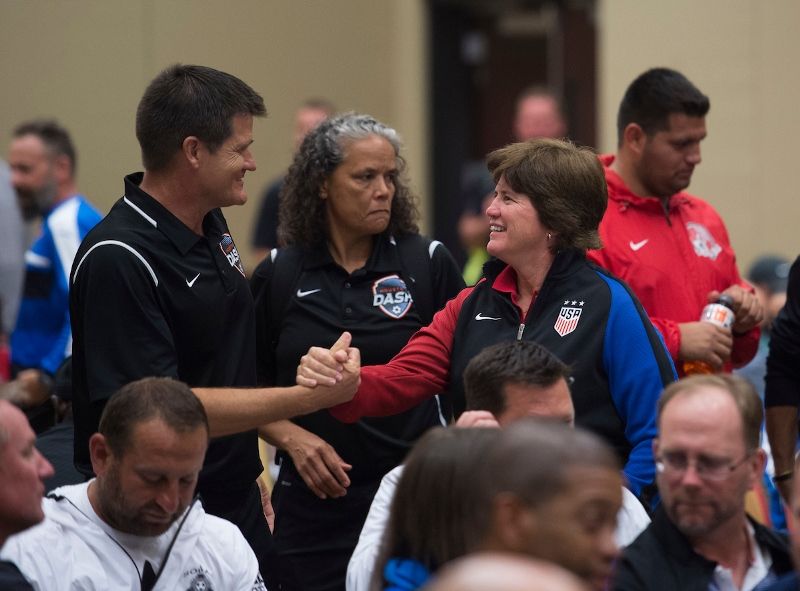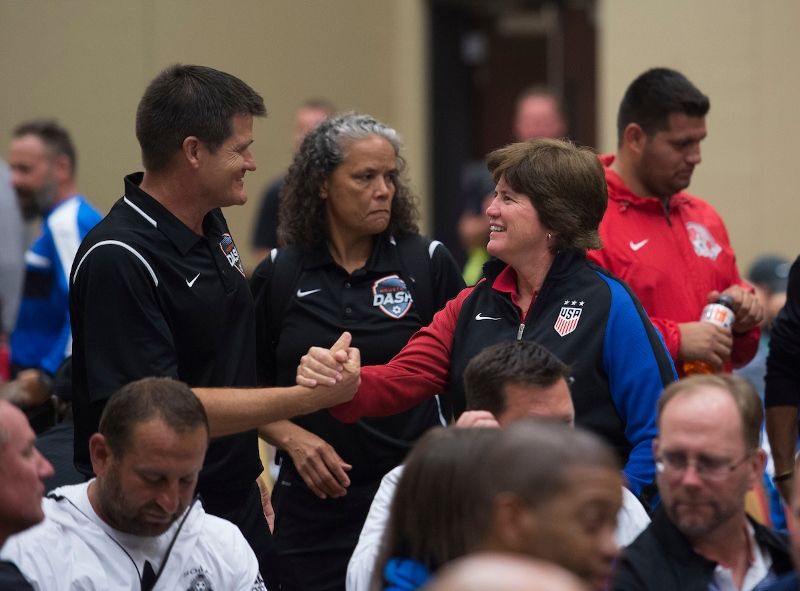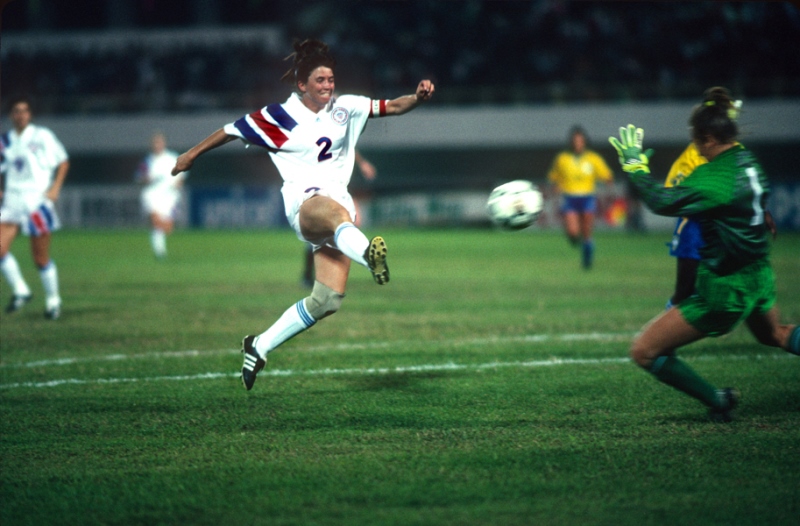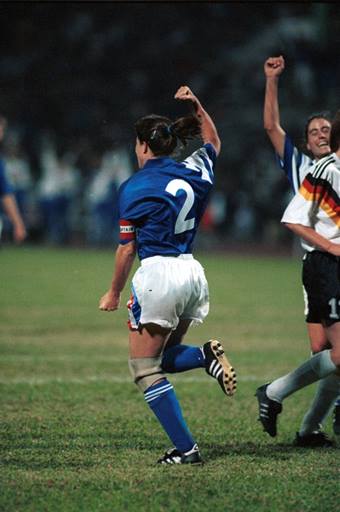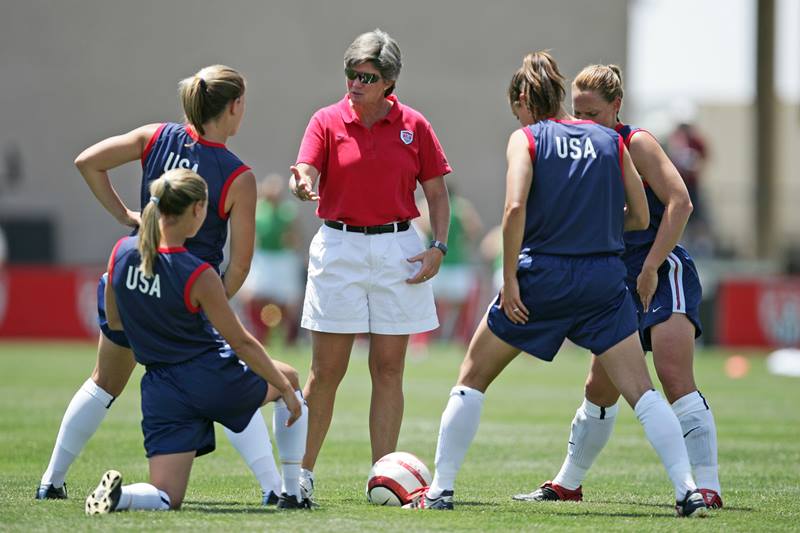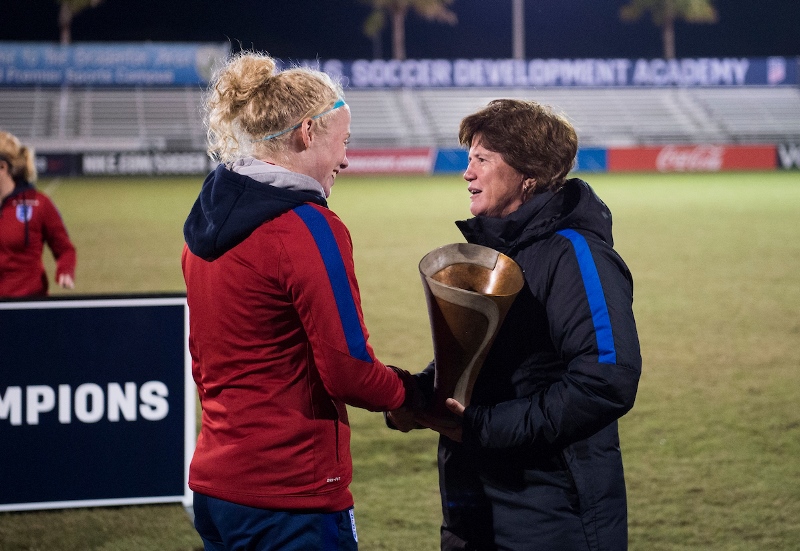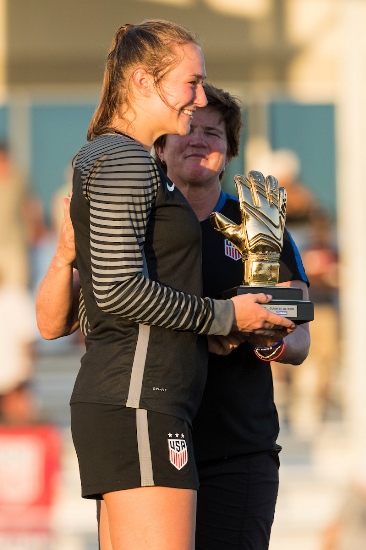April Heinrichs' Third Act Comes to a Close
April Heinrichs, whose career as a player, coach and administrator has literally spanned the history of U.S. Women’s National Team programs, will be leaving her position as Youth Women’s National Team Director when the calendar turns. So ends what can be called Heinrichs’ “Act 3” with the U.S. Soccer Federation in a remarkable professional life spent in support of the women’s game.